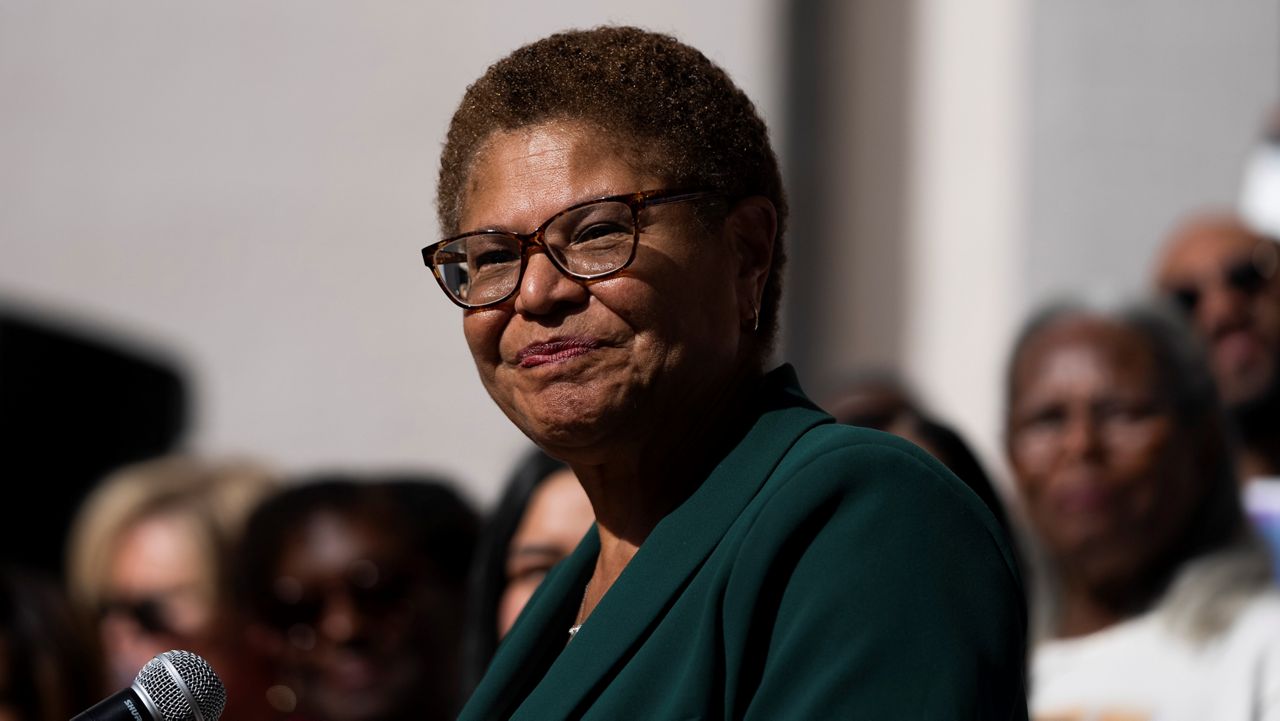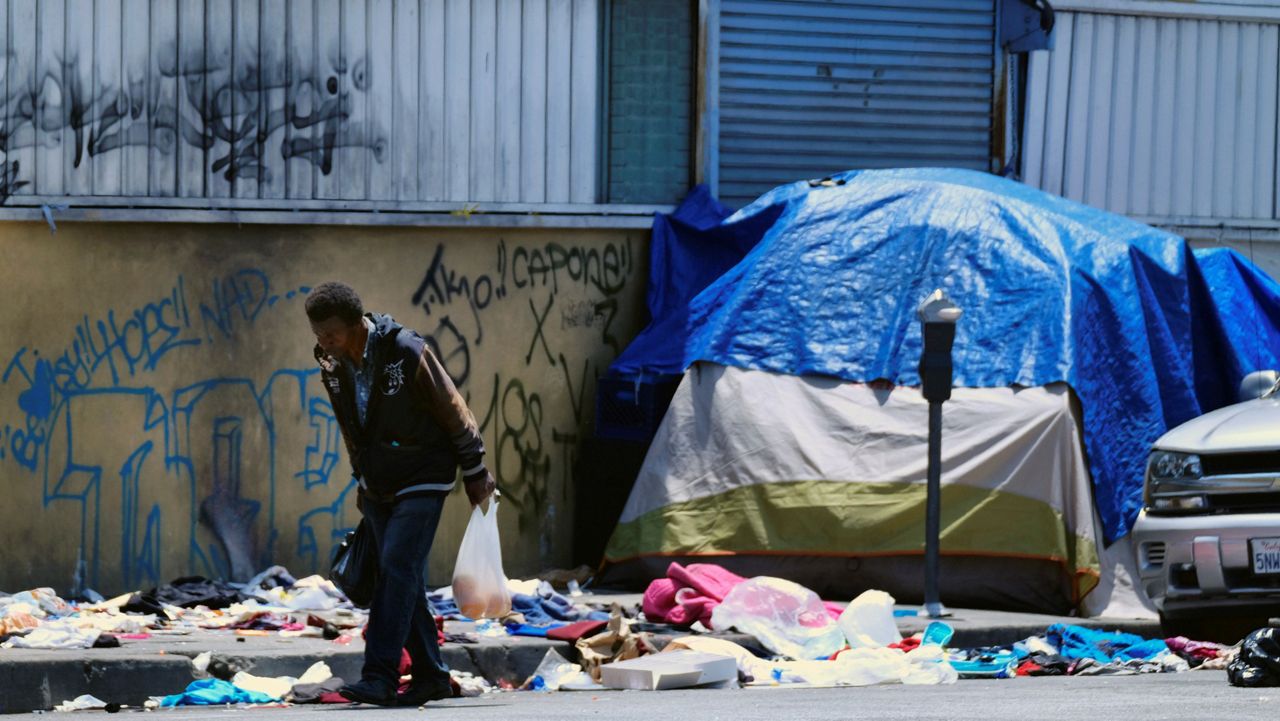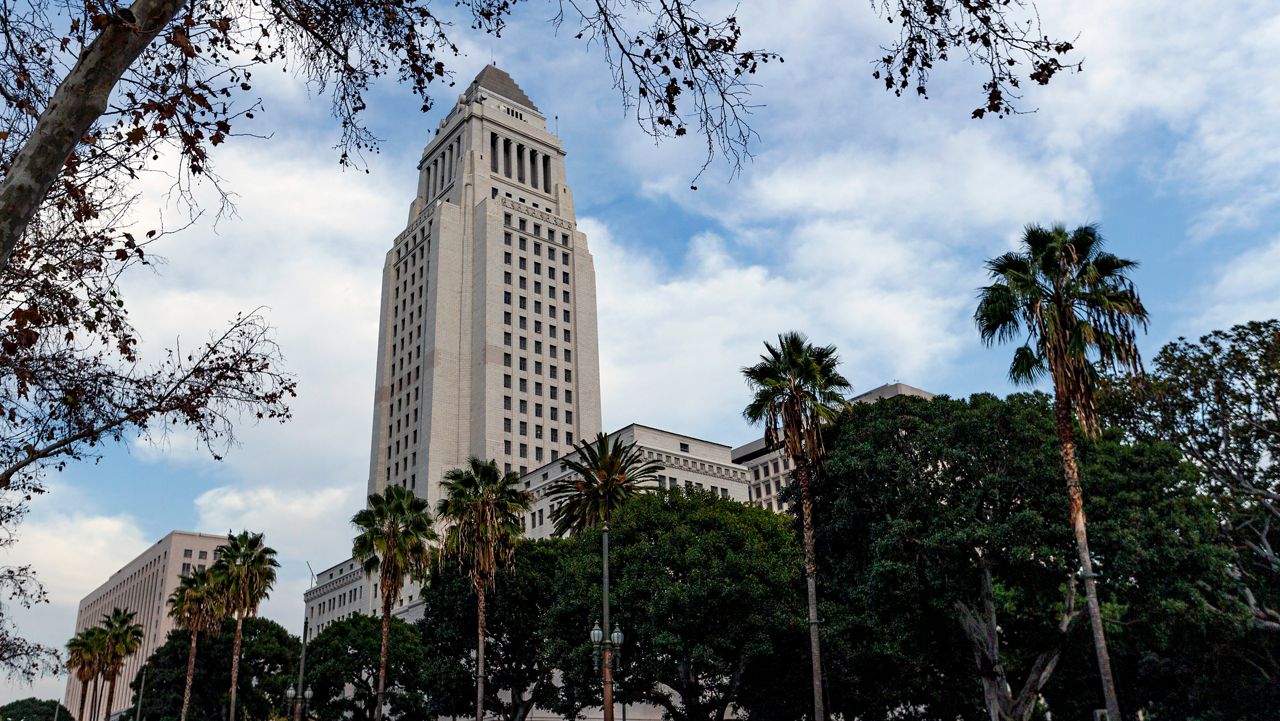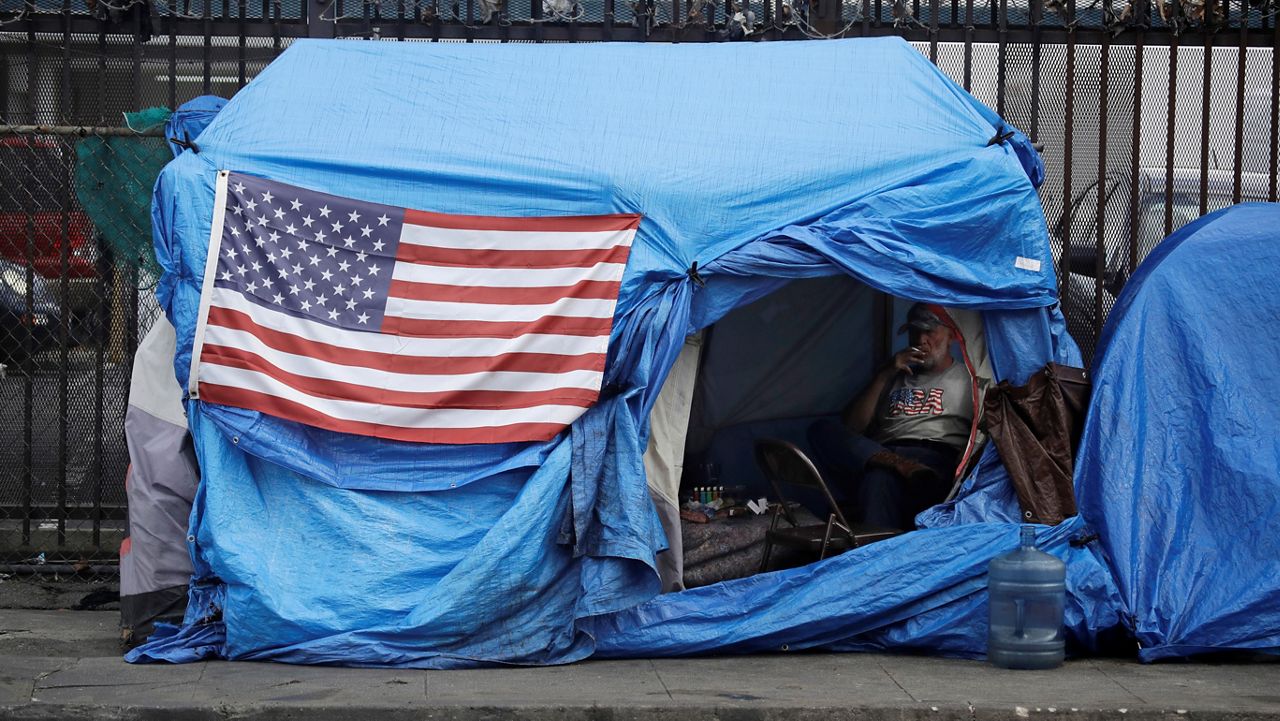LOS ANGELES (CNS) — In a show of support for Mayor Karen Bass’ efforts to address Los Angeles’ homelessness crisis, the City Council voted Wednesday to create and transfer $50 million into an emergency fund for the mayor to use at her discretion.
The funding, which passed by a 13-0 vote, would go toward Bass’ Inside Safe Initiative, which aims to bring residents of encampments indoors.
“We are in this crisis right now and we want the mayor to succeed,” Councilman Bob Blumenfield said. “We want to do everything we can. Even though it’s a lot of money, it’s actually a drop in the bucket of what is needed and what will be needed for the emergency efforts.”
The money will help immediately pay for hotels, increase in staffing and providers who are conducting outreach, according to Matt Szabo, the city administrative officer. Szabo said that without access to the immediate funding, the city lacks the capacity to pay providers in a timely manner.
“The program has brought to our attention the need to have an account of flexible dollars that can be spent quickly without going through the standard process of appropriation from this body,” Szabo said.
The council last month approved Bass’ emergency declaration over homelessness, which will be evaluated monthly by several indicators of progress, including the number of encampments and housing placements, and how much more flexibility city departments are allowed through the declaration.
The declaration is scheduled to last six months.
Of the $50 million, $26.5 million would come from a general fund account for homelessness services and the remaining $23.5 million from funding previously set aside for COVID-19 response.
The council voted last month to end the city’s state of local emergency due to COVID-19 at the end of the month, with a motion by Council President Paul Krekorian noting that it “is appropriate to close this account and appropriate the funds for other emergency purposes.”
Mercedes Marquez, the mayor’s chief of housing and homelessness solutions, said the dedicated funding will help the city bring in more service providers and ramp up its outreach to residents of encampments. The goal of issuing the emergency declaration is to take steps toward institutionalizing a solution rather than launching pilot programs.
“We’re not going to get to something that has more permanent value and outcomes if we continue to do pilots,” Marquez said.
The city officials said the funding will also help Los Angeles fulfill its requirements under an expected settlement with the LA Alliance for Human Rights, which sued the city and county in 2020, accusing them of failing to do enough to address the homelessness crisis.
The council on Wednesday also called for weekly updates from various city departments on outreach and other metrics related to homelessness. The council will also receive reports every two weeks on transactions and outcomes of the funding provided by the emergency account, and it will be briefed every 45 days on the progress of the Inside Safe Initiative.
“The state of emergency is not going to be a permanent state of emergency,” Krekorian said. “We’re going to use this emergency period in order to create solutions that will become permanent solutions.”
Councilwoman Nithya Raman, who chairs the council’s Housing and Homelessness Committee, said that any programs developed during the state of emergency must be “enshrined in city policy going forward.” She hoped for solutions that enable city departments to address homelessness under non- emergency circumstances, without the “subversion of traditional oversight.”
The last time a mayor declared a local emergency related to homelessness was in 1987, when Mayor Tom Bradley cited the effect of winter weather on people experiencing homelessness, according to the declaration. The conditions now, the declaration claimed, are “even more dire.”
There are an estimated 41,980 unhoused people in the city of Los Angeles, up 1.7% from 2020, according to the latest point-in-time count.
According to Bass’ office, the Inside Safe Initiative will work to identify the “highest need encampments” that have a chronic and high demand for services, according to the directive. Using citywide coordination between various departments and agencies, the action plan calls for identifying interim housing and eventually permanent housing resources for each person living in the encampments.
Under Bass’ first directive on streamlining project approval, city departments must conduct all reviews and issue approvals for 100% affordable housing projects within 60 days. Once construction starts, the utility permitting and certificate of occupancy process must be completed within five days for affordable housing units and two days for temporary housing.
City Controller Kenneth Mejia supported the council’s decision and plans to build a dashboard to track the progress of the Inside Safe Initiative. Mejia told the council that it would highlight available resources and include “monitoring the trajectory of unhoused community members from interim to permanent housing.”
“Permanent housing and empowering people to stay indoors must be at the center of our goals,” Mejia said.
Raman said she was excited to see representatives from the mayor’s office and the city controller all at the council chamber to discuss the item.
“Feels like a new day,” she said.









